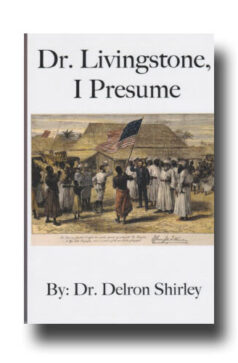As we’ve already learned, David’s influence changed the lives and destinies of not only his own immediate acquaintances but also left an enduring effect on generations to come. Let’s take a closer look at the circles of influence he demonstrated.
The first area of influence anyone has is upon himself. This may seem all too obvious, but we can see a dramatic example of this truth in the life of David. In I Samuel chapter thirty, we read the story of the devastation that David encountered at Ziklag. With their wives and families taken captive, their city burned, and their possessions stolen, David’s men had turned against him and were speaking of stoning him. Standing alone with no one left to support him, David knew of only one thing he could do — he encouraged himself in the Lord. (verse 6) He recognized that the first area of influence he had was over himself. Before he could muster his men to pursue the marauders and free their kidnapped families and take back their stolen goods, he knew that he had to bolster his own faith and willpower. His son, the wise King Solomon, would later pen the words, “As a man thinks in his heart, so is he,” (Proverbs 23:7) which seem to depict the truth that permeated his father’s being that day. Solomon lets us know that it is not what we think about, but the way we think about it that determines our destiny. On that fateful day with his future and the future of his men and the nation as a whole hanging in the balance, David had no choice but to think about his loss and that of his men; he had no choice but to think about those men who had served him loyally through thick and thin but were today threatening mutiny. However, he did have a choice concerning how he was going to think about these things. He made a choice to think about reclaiming the losses inflicted by the invaders rather than to hang his head in defeat; he made a choice to remember the extreme bravery and dedication his men had displayed over their time of service in his ranks rather than to distress himself with their present threats. As the Apostle Paul would note in the New Testament some one thousand years later, he chose to think on things that were of a good report. (Philippians 4:8) He determined to have a positive influence over himself — the first circle over which he held sway.
The next outstanding area of David’s was how he related to the people who are above him. He had what could have been a major challenge in his life in dealing with the person who was above him — King Saul. Have you ever noticed that David told King Saul three times that he had killed a lion and a bear? (I Samuel 17: 34, 36, 37) This simple fact may not be very meaningful until we read the words of David’s son Solomon in Proverbs 28:15, “As a roaring lion, and a ranging bear; so is a wicked ruler over the poor people.” It’s amazing that the wise king chose the exact two wild beasts that his father so bravely faced to describe a wicked king. It also seems as no coincidence that it was only to King Saul — the wicked king who would eventually pursue and try to kill David — that the shepherd told his story of having killed these threatening predators.
As the story of David unfolds, he had occasions in which the life of King Saul was in his hands, yet the righteous David refused to take his prey. He had the opportunity to take the life of the wicked king just as he had taken the lives of the lion and the bear, yet he rejected the occasion because he knew one other principle: vengeance is in the hand of the Lord, not in the hand of His people. Even though Saul had wronged David and would continue to seek to destroy him, David knew that his role was to allow God to deal with the enemy. In fact, I’m pretty sure that there was a reason that God let him slay the lion and the bear — so David would know that he could take on Saul even though he was not supposed to.
O LORD God, to whom vengeance belongeth; O God, to whom vengeance belongeth, shew thyself. (Psalm 94:1)
Thou answeredst them, O LORD our God: thou wast a God that forgavest them, though thou tookest vengeance of their inventions. (Psalm 99:8)
To execute vengeance upon the heathen, and punishments upon the people. (Psalm 149:7)
Although David had done nothing to oppose the king, the young man became the target of the older man’s violent hostilities. In addition to being an officer in the king’s army and the king’s personal musician who played calming music when tormenting spirits harassed Saul, David was also the king’s son-in-law and the closest friend of the king’s son. In each of these relationships, Saul lashed out against his servant. As an officer, David found himself under the king’s ire because the people celebrated his victories more than they did those of Saul. As the minstrel, he found himself the target of the king’s javelin when the spirit enraged him. As the son-in-law and friend of the king’s son, David found that the king tried to involve both his wife and friend in attempts to capture and kill him. Even though Saul acted irrationally and unjustly toward his loyal servant, David committed to never retaliate or take vengeance into his own hands.
On at least two occasions, David had the opportunity to take Saul’s life and ascend to his throne. (I Samuel 24:1-22, 26:1-25) Once when Saul had pursued him into the wilderness, David happened upon Saul in a cave. He stealthily slipped behind the king and cut off a strip of his garment. On another occasion, he happened upon him and his bodyguards as they all slept. This time he took Saul’s javelin (perhaps the same one that had been hurled at David previously) and his water bottle. Rather than taking his life, David simply took a token to prove to Saul that he actually had the king within his power. On both of these encounters, Saul was forced to acknowledge that David was acting righteously toward him while he was acting out of unjustified anger.
When David was only a little shepherd boy, the prophet Samuel had anointed him as the next king of the nation. Even though he lived for many years with this promise from God burning in his heart, David knew that it was not his place to try to take the throne by climbing the corporate ladder — as we would say in our modern society. We think that to get up the ladder, we must pull down the one who is above us. David, on the other hand, had apparently learned early in life the principle that he later recorded in the book of Psalms, “Promotion cometh neither from the east, nor from the west, nor from the south, but God is the judge; He puts down one, and sets up another.” (verses 75:6-7) Even though, the Spirit of God had departed from Saul and had anointed him, David determined to continue to show total respect and loyalty to the man as long as he sat on the throne where God had originally placed him.
The next relationship that we must understand is how to deal with the people who are below us. This principle is illustrated in the lives of the men who came seeking refuge with David when he had to flee from the king’s court. These men were described in the Bible as “everyone who was in distress, everyone who was in debt, and everyone who was discontented.” (I Samuel 22:2) In our modern vernacular, they were riffraff, outcasts, never-do-wells — in general, square pegs in a society made up of round holes. It is incredible what David did with these square pegs; he whittled them into shape so that they not only fit into society, but also actually stood out as superior to their peers. Chapter twenty-three of II Samuel recounts how this band of riffraff became notable warriors who accomplished feats of strength, valor, and cunning that would easily win them recognition by The Guinness Book of World Records and Ripley’s Believe It or Not. Unlike the contemporary philosophy of “I look tall when everyone around me is small,” David knew that it was his responsibility to help those under him to become all they could be. As he tried to pull them up the ladder, he had to step up to the next rung himself. Without focusing on climbing the corporate ladder, he found himself getting closer and closer to the top each time he tried to help those under him achieve.
David’s own father didn’t call him to the interviews with the prophet because he couldn’t see what was inside the lad. (I Samuel 16:7) Had Jesse been able to discern his young son’s spirit, he would have called this little shepherd to the front of the line from the beginning. Unlike his father, David was able to look at the external evidence that would label these recruits as misfits; instead, he was able to discern the warriors that were inside of them. As Christians, we are commanded no longer to see one another according to our outward appearance — by gender, color, race, creed, or ethnic origin — but as the new men we are in Christ. (Colossians 3:9-11) We must look beyond what we see externally and discern what can become of those we are given an opportunity to mentor.
The Bible speaks many times about the importance of investing in the lives of others. In the parable of the banquet, the servants were sent out to the highways and hedges to find people who needed an investment made into their lives. (Luke 14:23) David learned that planting into the lives of others was of ultimate importance — even when these other individuals were social outcasts and misfits. (I Samuel 22:1-2) The men that he took under his wing in the Cave of Adullam turned out to be the brave ones who protected him when he had to flee from Absalom. (II Samuel 15:14-15)
Developing leadership is a vital part of the faith. Moses imparted leadership into Joshua. (Numbers 27:18-20) Elijah developed the ministry of Elisha. (I Kings 19:19) Jesus nurtured the apostles. (Matthew 10:1) Peter mentored Mark. (I Peter 5:13) Paul raised up Timothy as a son in the faith. (I Timothy 1:2) These biblical leaders understood that developing leadership perpetuates the gospel and enhances ministry. When Jesus told the disciples that they would do greater works than He did (John 14:12), He was likely not saying that they would do more powerful acts than His but that their ministries would spread all over the world while His ministry was limited to one geographic location. When Barnabus took Saul of Tarsus under his wing, he was probably aware that his own ministry and legacy would actually pale in the shadow of that of his young protégé. (Acts 11:22-26) Leaders in the Body of Christ must not be intimidated by the fact that their disciples may wind up doing what they have done — or that they can actually do it better! David killed one giant, but his disciples killed four. Today’s pastors must also determine to develop stronger leadership under their care to work alongside them and to eventually succeed them. In addition, the pastors must instill the same spirit of mentorship in their trainees so that they become more aware of ways they can help the volunteers under them to develop their ministries.
And the things that thou hast heard of me among many witnesses, the same commit thou to faithful men, who shall be able to teach others also. (II Timothy 2:2)
The principle of mentoring was evident in the lives of many of the leaders in the Old Testament. In fact, the Old Testament is very clear concerning the power of such mentoring. There are several examples given of when the spiritual sons were responsible to finish their spiritual fathers’ work. In the case of David, it was his son Solomon who built the temple that was in his father’s heart. (I Kings 5:5) Probably the most revealing example is the story of how God gave Elijah three mandates in I Kings 19:15-16 — to anoint Elisha, Hazael, and Jehu. The prophet fulfilled the first mandate immediately by anointing Elisha as his successor. (I Kings 19:19) Many Bible teachers declare Elijah to be a failure since he did not accomplish the other two parts of his mission. However, if we understand the principle of fruitful multiplication, we will see the story in a new light. Because the elder prophet Elijah adopted the young prophet as his spiritual son, he was able to pass on the commission to him. When Elisha fulfilled the second mandate (II Kings 8:13), it was essentially a spiritual extension of the ministry of Elijah even though the senior prophet was not physically present. But the plot thickens even more when we see that the third part of Elijah’s mission was accomplished by an unnamed disciple of Elisha. (II Kings 9:1-10) What a thought to meditate on — the ministry was passed on to a third generation, but it was still fulfilled as if it had actually been done by the hands of Elijah. Interestingly enough, we don’t even know the name of this third-hand recipient of the mandate, signifying that he as an individual was not nearly as important as the fact that he was the recipient of the blessing that was upon the original prophet. The same principle is of utmost importance for our success in ministry — it must be passed on to subsequent generations through the raising up of disciples who will carry on the vision, mission, and message. Disciples must be trained to do what their mentors do — and to do it even better.
Two other simple thoughts must also be considered in terms of our relationships with those who are below us. First, we must treat everyone equally and fairly. In the story of David’s conquest of the Amalekites in I Samuel chapter thirty, he gave equal portions of the spoil to the ones who remained to watch over the camp and to the ones who actually went out to battle. (verse 24) Everyone received the same, no matter what he did. Next, we have to learn to listen to and take counsel from those who are under our leadership. Because they are actually in the spot where the “rubber meets the road,” they may actually have a better vantage point than we do. Bathsheba averted an uprising and secured the throne for Solomon by persuading King David to declare his intent that Solomon was to succeed him as the next king. (I Kings 1) This was an excellent case of the wife being the neck that turns the head while the husband remains the head of the household.
The next level of relationship that we must develop is illustrated in David’s relationship with Jonathan — the relationship we must develop with those who are beside us, our peers. Jonathan and David were apparently about the same age, they were both accomplished warriors, and it seems that they shared many of the same interests. There was, however, one possible bone of contention between them: Jonathan, who was captain over one third of the army while Saul’s two other sons were not given any positions of leadership (I Samuel 13:2, I Chronicles 10:6), was the heir apparent for the throne while David was the one anointed by the prophet to ascend to the royal seat. These two young men could have seen each other as rivals rather than friends. David and Jonathan, however, determined to support rather than challenge each other. They both seemed to know that God would ultimately decide who would be the next to wear the crown and that there was no purpose in their contending with each other for it.
Too often, we fail to see our peers as conveyors of God’s blessings; instead, we tend to see them as contenders for the blessings of the Lord. The story of two local pastors illustrates this point dramatically. One pastor had a very large, exploding congregation; the other had a small, struggling group of followers. When the pastor with the growing congregation was forced to relocate to a larger facility, he bought a plot of ground just a few blocks from the other pastor’s church. As soon as the construction began, the pastor of the smaller church began to feel very threatened by the fact that the larger congregation was moving into his “turf.” He was afraid that the larger church would suck all the members out of his church and swallow him up. When the new pastor learned of the other pastor’s concerns, he graciously asked him to lunch. He reached across the restaurant table and reassured the troubled pastor, “Please don’t view me as an opponent. See me as a partner together with you. We’re on the same team, doing the same task of bringing the gospel to this community. You know that every Sunday there are going to be thousands of people who will drive past your church on their way to visit my service. The thing you may not know is that when they get there, there will be hundreds who do not want to come back again. Some won’t like my sermon; some won’t like our music; some won’t like worshipping in such a large group — but for one reason or another, they will not be happy at my church. Many of them will remember seeing your building as they came to mine and will decide to try visiting your service the next Sunday. And many of them will stay after they visit with you once.” With this little pep talk, the young pastor won the older pastor’s confidence and they became partners rather than opponents. The result was that the smaller church doubled in size within the first year that the big new church was open!
David also had winning relationships with his supporters, those who were behind him. We often use the expressions like, “I’m behind you all the way,” or “I’m behind you on this one,” or “I’ve got your back,” to register our support of a person and his projects. In David’s life, it was the ones who had started out under him who became the ones who were so powerfully behind him. We’ve already made reference to one story from the chronicles of David’s mighty men, but it is worth revisiting it here because it so poignantly illustrates the relationship between the king and his men. In the heat of battle one day, David made one of those wistful comments we often make when we long for the better times we remember of the past, “If only I could have a drink of water from the well at Bethlehem!” I’m certain that any water would have served to slake his thirst, but his soul cried out for the cool, clean waters of the community well outside the village gates because of the association with the blissful days of his childhood when, as a shepherd, he would draw deeply from that well to refresh himself and his sheep. When his bodyguards heard his sigh, they secretly broke from their ranks and fought their way through the enemy lines to get to the well. Once they had filled their flasks with the precious water, they again fought their way through the thick of the battle to bring the offering to their commander and chief. When David was offered the flask, he was surprised that his men had risked their lives to push through the fray in order to satisfy his whimsical request. Awestruck by their bravery and sacrifice, he refused to drink the water; instead, he poured it on the ground as a libation before the Lord. The key principle in this lesson is that he understood the love and dedication of his men as being inspired, not by himself, but by the life of God they saw in him. Therefore, he presented the water as an offering to God — the one who really deserved it. For those who are behind us, we must learn to recognize that any good they are attracted to in us is not of ourselves, but of Christ who lives inside us.
In the same fashion that we have supporters behind us, we will certainly have opponents in front of us — the “in your face” sort people who challenge and accuse us. The classic example in David’s life was Shimei who openly accosted and ridiculed David as he fled Jerusalem during the attack by his son Absalom. On what was already likely the most humiliating day of David’s life, this rogue scoundrel made the most unthinkable spectacle of the king by chasing alongside him as he fled before the advancing army led by his own son and slandered him publicly — calling him every nasty name imaginable. Later, when David returned to Jerusalem in triumph, Shimei came bowing before the king to apologize for his foolishness and unwarranted accusations. Although David’s men wanted to kill the slanderer, David spared the culprit’s life. The king knew that, just as his supporters favored the life of God they saw in him, it was the manifestation of God inside him that had stirred up a manifestation of the demonic forces within Shimei.
For those who affront us with an “in your face” challenge, we must learn to realize that they are not so much attacking us but are fighting the Spirit of God inside us. At that point, we must remember Ephesians 6:12, “For we wrestle not against flesh and blood, but against principalities, against powers, against the rulers of the darkness of this world, against spiritual wickedness in high places.” For the individuals we must pray as Jesus did for those who drove the nails into His flesh, “Father, forgive them for they don’t even know what they are doing.”
When David was encompassed by a multitude of enemies, he cried out as to where he should look for help. His mind questioned if he could look to the hills as a place of refuge from his pursuer, but his spirit immediately retorted that he must look unto the Lord for that was his only source of help.
I will lift up mine eyes unto the hills, from whence cometh my help. My help cometh from the LORD, which made heaven and earth. (Psalm 121:1-2)
Couple that with the story we learn from I Samuel 30:6, “And David was greatly distressed; for the people spake of stoning him, because the soul of all the people was grieved, every man for his sons and for his daughters: but David encouraged himself in the LORD his God,” and we can see what a radical difference the presence of the Holy Spirit can make. No matter how desperate the circumstances may be, it can be changed through the edification that we can receive from allowing the Holy Spirit to manifest Himself. Like David, God was ready to prepare a table for us — even in the very presence of their enemies. (Psalm 23:5)
David also wrote of brethren living and functioning together in unity but used what seems at first glance to be a most unusual illustration to get his point across.
Behold, how good and how pleasant it is for brethren to dwell together in unity. It is like the precious ointment upon the head, that ran down upon the beard, even Aaron’s beard: that went down to the skirts of his garments; As the dew of Hermon, and as the dew that descended upon the mountains of Zion: for there the LORD commanded the blessing, even life for evermore. (Psalm 133:1-3)
If we understand the functioning of the Body of Christ, we can see why David wrote as he did. Unity within the body can only result when each individual finds his place and supplies his part. Paul said that the entire body would be edified in love when each member functions in the proper way. The imagery of the precious ointment speaks of the anointing oil poured over Aaron when he was commissioned into his position as high priest. This oil is symbolic of the presence of the Holy Spirit spoken of in I Corinthians 12:7 as the “manifestation of the Spirit.” David goes on to say that the oil runs from Aaron’s head, to his beard, and all the way to the fringes of his skirt. This speaks of the flow of God’s anointing throughout the properly submitted Body of Christ from the Head Jesus Himself — through the called ministers to the total body — so that no one is excluded in the manifestation of the Spirit. As Paul said, “It profits withal.” Everyone in the church is blessed when we all function in our spiritual gifts under the motivation of the love of God the Father.
David next mentioned the dew that flows from Mount Hermon. This reference brings to mind a beautiful illustration of how important it is to be God’s pipeline in our ministries. The water that flows from Mount Hermon forms the Jordan River that flows into two different bodies of water. One is the Sea of Galilee that is teeming with life; the other is the Dead Sea, which as its own name depicts, sustains nothing in its waters. The difference between these two seas is that the Galilee receives and gives — it is a pipeline. The Dead Sea has no outlet — it is only a taker. Because it does not relate to others, it is dead. The only way to keep spiritually alive is through properly relating to others — above, beneath, beside, behind, and in front of you.










